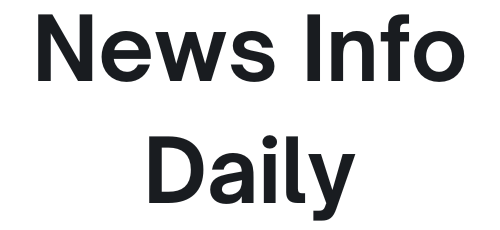Introduction of Xalts Contour Network.
In a fascinating turn of events, Singapore-based fintech startup Xalts has acquired Contour Network, a digital trade platform established by eight central banks, including HSBC, Standard Chartered, and BNP. Though undisclosed, the acquisition price is estimated to be in the high single million, comprising cash and stock.
Xalts, backed by Accel and Citi Ventures, empowers financial institutions to create and manage blockchain-based applications. On the other hand, Contour, initiated in 2017 by a consortium of eight banks, aims to digitize trade processes. It serves 22 banks and over 100 global businesses, including Tata Group, Rio Tinto, and SAIC1.
The founders of Xalts, Supreet Kaur and Ashutosh Goel, who have extensive experience at HSBC and Meta, respectively, have ambitious plans. They intend to transform Contour into a rail connecting banks, corporations, and other institutions. Integrating it with the Xalts platform aims to facilitate secure and compliant client interactions. Initially, the focus will be on enabling banks and logistics companies to offer their customers embedded trade and supply chain applications on a unified platform.
As global trade continues to expand, with an expected value of $30 trillion by 2030, initiatives like Xalts play a crucial role in reducing friction and streamlining transactions across the financial landscape.
Who are the founders of Contour Network?

The founders of Contour Network are Frank Seiji Sanda and Carl Wegner. Carl Wegner currently serves as the Chief Executive Officer of Contour, leading the charge in revolutionizing the trade finance industry by creating a global network that removes barriers and transforms trade finance products, starting with Letters of Credit. Frank Seiji Sanda, one of the founders, played a pivotal role in establishing the company in 2006. Together, they’ve been instrumental in shaping Contour’s mission to make global trade accessible, digital, and secure
Who are the investors in Xalts?
Xalts, the Singapore-based fintech startup, has garnered support from several investors. Notably, the following investors have contributed to its growth:
- Citi Ventures: A strategic investment arm of Citigroup, Citi Ventures focuses on backing innovative companies in the financial technology space12.
- Sandeep Narwal is an individual investor who has shown confidence in Xalts and its vision.
- Accel is a prominent venture capital firm that has also invested in Xalts. Their support contributes to the company’s development and expansion.
These investors recognize the potential of Xalts to revolutionize trade finance through blockchain-based applications and create a seamless network for financial institutions and businesses1.
What is blockchain technology?
Blockchain technology is a powerful concept that has transformed various industries. Let’s delve into the details:
- Definition:
-
- Blockchain is a digital ledger that serves as a shared, reusable record for transactions, asset tracking, and fostering trust.
- It operates as a distributed database where data is stored in blocks linked together using cryptography.
- A chain is formed by each block containing a set of transactions.
- How It Works:
-
- Transactions: When a transaction occurs (such as transferring money or recording ownership), it is grouped into a block.
- Consensus Mechanism: The network of participants (nodes) reaches a consensus on the validity of transactions. This ensures that everyone agrees on the state of the ledger.
- Immutability: Once a block is added to the chain, it cannot be altered. This makes the blockchain tamper-evident and secure.
- Blockchain operates decentralized: unlike traditional databases, it eliminates the need for a central authority.
- Key Features:
-
- Transparency: All participants have access to the same information, creating transparency.
- Security: Cryptography ensures data integrity and prevents unauthorized changes.
- Efficiency: Transactions are processed faster due to automation and smart contracts.
- Trust: The shared ledger builds trust among participants.
- Use Cases:
-
- Cryptocurrencies: Blockchain is the foundation for cryptocurrencies like Bitcoin and Ethereum.
- Supply Chain Management: It enables transparent tracking of goods from origin to delivery.
- Smart Contracts: Self-executing contracts automate processes based on predefined conditions.
- Blockchain technology offers a secure method for managing digital identities.
-
Why It Matters:
-
- Accuracy: Immediate and accurate information benefits businesses.
- Efficiency: reduced duplication of effort and streamlined processes.
- Security: Immutable records prevent fraud and tampering.
How does blockchain ensure security?
Blockchain technology ensures security through a combination of robust mechanisms. Let’s explore these key aspects:
Cryptography:
Encryption Techniques: Blockchain relies on cryptographic methods to secure data. These include:
-
- Public Key Cryptography: It enables secure communication between parties using public and private keys.
- Digital Signatures: Each transaction is signed cryptographically, ensuring its authenticity and integrity.
- Hash Functions: These create unique fixed-length representations (hashes) of data, making it tamper-resistant.
- Decentralization:
-
- Distributed Network: Blockchain operates across a network of nodes (computers). There is no central authority, reducing the risk of single points of failure.
- No Single Point of Control: No single user or entity can unilaterally alter the record of transactions.
- Consensus Mechanisms:
-
- Achieving Agreement: Consensus mechanisms ensure that all participants agree on the validity of transactions.
- Examples:
-
- Proof of Work (PoW): Used in Bitcoin, miners solve complex puzzles to validate transactions and create new blocks.
- Proof of Stake (PoS): Validators are chosen based on the amount of cryptocurrency they hold, reducing energy consumption.
- Delegated Proof of Stake (DPoS): Selected delegates validate transactions on behalf of the network.
-
-
Immutability:
-
- Once Recorded, Never Altered: Once a transaction is added to a block, it cannot be changed. The entire chain would need modification, which is computationally infeasible.
- Network Types:
-
- Public blockchains: enable anyone to participate and verify transactions.
- Private Blockchains: Restricted membership with known organizations
-
Smart Contracts:
-
- Self-Executing Code: Smart contracts automate processes based on predefined conditions.
- Enhanced Security: They execute only if conditions are met, reducing human error and fraud.





